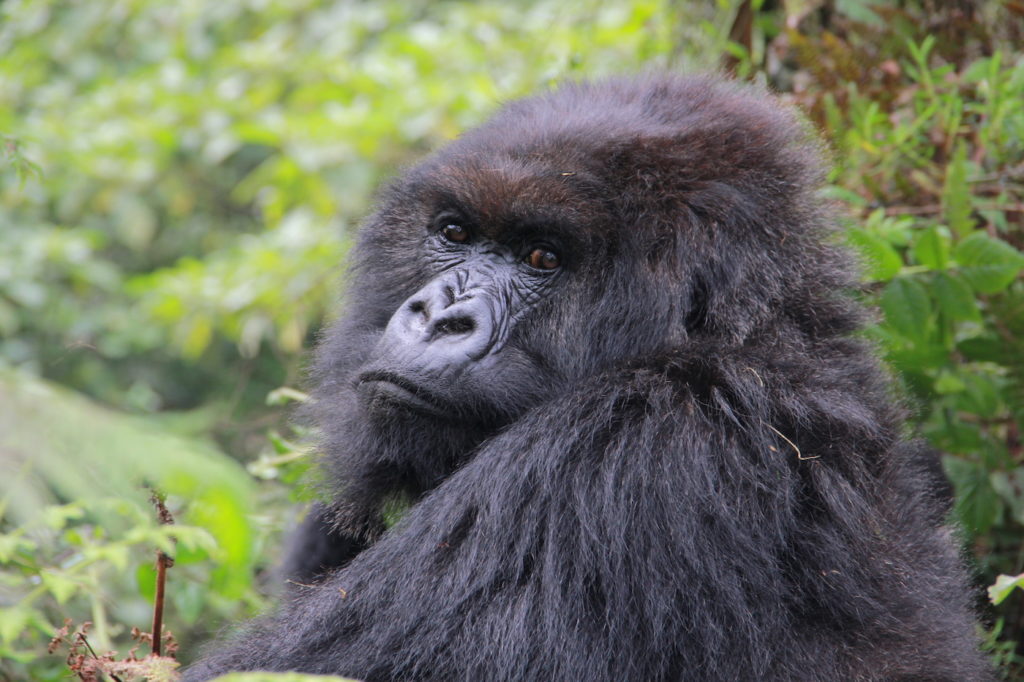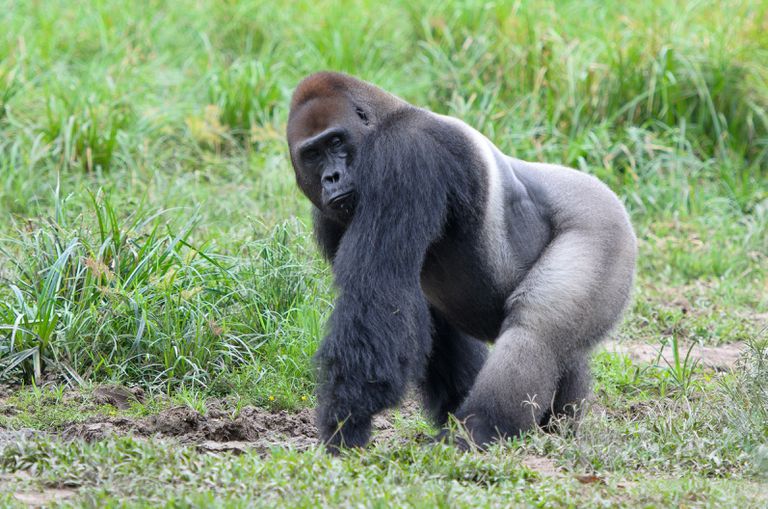1. What is the weather Like on Uganda safari?”
Weather is among the Frequently Questions for the best Uganda safaris since most visitors to Uganda come from areas that have different weather conditions Uganda as a whole is covered with a tropical Climate, though sometimes the heat is disturbed by the altitude, however much the country is more than 1000m above sea level. Note that Rainy seasons are from the month of March to May, and September to November this is usually the pattern unless otherwise. While the Dry seasons are from December to February and Mid-June to Mid-August, while the average temperatures Range from about 160c in the South west Highlands, 250c in the Northwest, while in the North East, Temperatures go above 300c. But feel free to visit www.worldweather.org for more Information.
2. Do I need a visa to enter Uganda for a Uganda safari?
This is among the most asked Questions for the best Uganda safaris to any first time Visitor, Any visitor to Uganda is required to buy a tourist visa that Usually goes up to 90 days stay in Uganda, before entering Uganda. These Visas can be bought from Uganda’s Embassy or consulate in your country or upon arrival at Entebbe International Airport. For a tourist who will visit Uganda and any other East African Country, he or she needs an East African Visa. Remember you must have a passport 6 months valid before date of entry. Kindly check with your Embassy as for the Visa Regulations keep on Changing.
3. Are travelers’ cheques accepted during a Uganda safari?
No, Travelers cheques are not accepted in Uganda.
4. What should I tip while on a Uganda Safari?
How much would one tip while on a Uganda Safari is among the frequently asked Questions for the best Uganda safaris, this really is fully dependent on the level of satisfaction, though even a small tip to show your gratuity is highly appreciated. Do all trip costs involve tips? All our tips are not Mandatory. Though today, its a culture that has taken root as it’s a sign of being gratuitous.
5. What should I bring while coming for a Uganda safari?
This is among the frequently asked Questions for the best Uganda safaris by most first time visittors to Uganda. however we mainly advice one to carry their essential day to day used items and you can also add the following in general, Daypack, A high sunscreen, Flashlight/torch, Insect Repellent, water Proof Bags, electric plug adaptors for 240 volts AC 50 Hz. UK – style square pin plugs are Used, Antiseptic Hand Wash, An international Driving License if you are thinking of going for a self-drive, good walking boots/shoes, sandals or other Light shoes, water proof jacket, sun hat/ cap, Professional destination Map, Contacts for the respective Contact Person, Uganda’s culture is a conservative one, while on a Uganda safari avoid very short skirts and very short shorts.
6. What is the best time to travel in Uganda?
Usually the dry seasons In Uganda are the most suitable months of Travel which are from December/ January through to Mid – March and from June through to Mid – September, with July and August, Christmas and New Year becoming the peak seasons. While on a Uganda Safari however much it will be a dry season always expect rains on any day. For the rains Most of them fall in October – November and April – May. However, these rains don’t fall every day, now and then. The weather in Uganda can’t dictate your travelling plans, for a wet season can be a blessing in disguise.
7. What is the Currency in Uganda?“
The Currency in Uganda is a Ugandan Shilling, note that this cannot be purchased outside Uganda. And there are quite few places in Uganda that accept dollars, Mostly uptown Hotels do accept.
8. How do I exchange Cash on a Uganda safari?
The Uganda city Hub is well placed with prominent and trust worthy Forex Bureau, that mainly can sell to you US dollars, UK pounds and Euros , these are sold and bought by 90% of the Forex Bureau in Uganda. Always endeavor to change your money from a forex bureau recommended by your travel guide. This is among the mostly asked Questions for the best Uganda safaris in order for someone not to fall short of cash during the safari
9. Can I use credit or debit Cards?
Visa is more widely accepted in the city Hotels, stores and some fuel stations, followed by the Mastercard. Other credit cards are unlikely to work. alert your bank before using your card abroad to avoid it being blocked.
11. Is Uganda a safe country For Visiting?
Undoubtably among the mostly asked Questions for the best Uganda safaris, With a simple answer which is YES With low crime rates. Yes, Uganda is one of the safest and stable countries in Africa for tourists. The Uganda national parks and game reserves are always monitored and patrols are frequently made by Uganda Wildlife Authority rangers and Uganda tourism police to make sure that the sites are safe for visitors. It is advisable not to travel at night and not to carry large amount of cash or valuables in the cities. Keep money and credit cards inside the pocket and remember to keep the windows raised while in Kampala city.
12. Is the Capital City Kampala safe for a tourist’s city Visit?
Kampala in Africa and East Africa is regarded as the safest Capital Cities, though just like other cities petty thieves may try to snatch a few things like Phones and other valuables, always be vigilant with these items especially your travel Documents.
13. Which Vaccinations do I need?
A yellow fever vaccine is essential, Bring your certificate with you. Hepatitis A and Polio, Tetanus and typhoid Vaccinations are also recommended. Be aware that some of these require a course of injections, and others take several days to take effect, so you should visit your doctor or travel clinic as soon as possible before you Travel.
14. Should I Bring any other Medications?
Anti- malarial tablets are recommended throughout Uganda. Bring all prescription medications with you, they may not be readily available in Uganda. Be sure to purchase travel insurance before beginning your trip, including medical evacuation in case of any emergency. For safety one should carry Anti-Malarial Tablets while travelling to a country with a tropical Climate. Visit Your doctor to prepare a goo Medical kit for you. Don’t Forget to carry an insect repellent either a body cream or a spray.
15. What other health risks are there?
Even if you are taking Anti-malarials, you should still wear insect repellent, long sleeved shirts, long trousers and closed shoes, this is when maybe you get to go in the Jungle on a Uganda Safari. This will also protect you from other diseases carried by mosquitoes and other insects such as tsetse flies.
16. Do I need plug or Adapter?
Uganda uses a 240 volts AC 50 Hz square-pin plug, the same used in the UK and Ireland.
17. How Can I pay for My safari?
We have quite a number of payment procedures in which you can place your safari payments. You can make payment via bank direct deposit or using credit card. However, we also have a visa card payment facility called DirectPayOnline, this can be found down on our website.
18. What are the Safari Accommodation Like?
Safari Accommodations are categorized in 3, Budget/Economy, Midrange/comfort and Luxury. It’s you the client to choose which type of accommodation and we reserve that for you as we are well connected to different lodges, campsites and hotels in the region. Budget accommodation consists of simple and basic room, Banda or tents, providing double or twin beds and mosquito nets when necessary. Private bathrooms are not always available, public showers and toilets are used. Hot water isn’t guaranteed. Luxury accommodations are 4- or 5-star lodges, providing comfortable rooms or luxury furnished tents and a private bathroom.
19. What vehicles does Gracious Tours and Travel Ltd Use for the trip?
We transport our clients in private 4WD customized 8 seaters safari Land cruisers with pop up safari roofs for better game viewing. Our vehicles are fully converted safari vehicles suitable for any challenging safari. Our driver guides are excellent with experience on our roads.
20. Is there electricity in the Whole Country- Uganda?
About 30% of the country has electricity and few areas outside the towns and cities have electricity. Lodges in rural areas have power provided by generators and solar energy. Park regulations do not allow generators to be run throughout the night so it’s advisable to pack a flashlight and batteries. In many spots, you will almost certainly charge your telephone, however PCs or camera batteries must be charged in the primary zone. For safety one should carry Anti-Malarial Tablets while travelling to a country with a tropical Climate. Visit Your doctor to prepare a goo Medical kit for you. Don’t Forget to carry an insect repellent either a body cream or a spray.
21. What Language is spoken in Uganda?
You will find that English is widely spoken throughout Uganda and by those working in the hospitality industry. The official language used in Uganda is English making communication with travelers/ visitors easy something so convenient and appropriate for all on tour, but there are many other local languages as well.
22. How can I make Phone Calls in Uganda?
We have a variety of telecom companies, you may be able to purchase an inexpensive SIM card if your phone is compatible at the airport or in major cities and towns around the country. But most importantly to keep in touch with people at home, we advise you install apps like WhatsApp, Imo and the likes. Its cheaper to make an international call through these apps.
23. How can I access internet in Uganda or on a Uganda Safari?
Most accommodations offer Wi-Fi in their main areas, it’s not continually working or exceptionally moderate. It is ideal to purchase a Uganda paid ahead of time sim card. They are broadly accessible all through the nation. There is a 4G motion in significant urban areas but network coverage is weak. 24. How should One dress while in Uganda? Day time temperatures are generally warm and hence one has to wear light clothes and the evening temperatures are cooler especially in high altitudes hence one has to carry sweaters, rain ponchos or heavy jackets.


